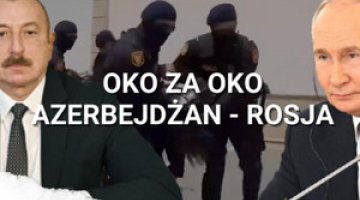Russia: Kadyrov is in conflict with the law enforcement agencies
On 19 April, officers from the Ministry of Internal Affairs of Stavropol Krai and from the Russian military base in Khankala carried out a special operation in Chechnya. A wanted criminal resident in the republic was killed during this operation. These moves were criticised by Chechnya’s president, Ramzan Kadyrov, who stated that the Chechen Ministry of Internal Affairs had not been informed about the planned operation. He demanded that an investigation be launched into this matter and instructed Chechen law enforcement agencies to open fire on officers from other entities of the Russian Federation who launch any operations in Chechnya without having consulted Grozny. At the same time, he made assurances of his loyalty towards Vladimir Putin and of his readiness to carry out his orders.
In response to this, the Russian Ministry of Internal Affairs issued a statement claiming that the Chechen Ministry of Internal Affairs had been informed of the operation. It condemned Kadyrov’s threats concerning the use of arms with regard to officers from other regions, and referred to the fact that the structures of the Chechen Ministry of Internal Affairs report to the federal government. The Investigative Committee of the Russian Federation refused to launch proceedings to clear up the details of the operation. The Kremlin has not reacted to the incident. The presidential spokesman, Dmitry Peskov has stated that he is familiar with this case but has refused to comment on it.
Commentary
- The incident is one manifestation of a conflict between the Chechen leader and the Russian law enforcement agencies. This conflict has escalated since the murder of Boris Nemtsov. Russian law enforcement agencies have blamed this murder on people linked to Kadyrov, who has been accused of hiding the suspects (for example, Ruslan Geremeyev, the commander of Battalion ”Sever” in which the main suspect, Zaur Dadayev, served). These agencies (like other federal government bodies) are watching Moscow’s loosening grip on the government in Grozny with concern. This is resulting in Chechnya drifting further and further adrift of the Russian legal area. What causes their disapproval are the ambitions of the Chechen leader, who would like to see himself as a politician with regional impact, and his efforts to take over the monopoly on the use of violence in the republic. The contacts Grozny keeps with the Chechen diaspora abroad (Europe and the Middle East) and the expanding area of activity of Chechen criminal groups linked to Kadyrov are other dangerous elements from the point of view of the law enforcement agencies. They perceive this situation as a new incarnation of Chechen separatism.
- The Kremlin is an arbiter in Kadyrov’s dispute with the Russian law enforcement agencies and is thus facing a difficult dilemma. On the one hand, it cannot remove Kadyrov due to the fear of the situation in Chechnya destabilising, and on the other it cannot disregard the interests of the law enforcement agencies, which are one of the pillars of the Russian system. Restraining Kadyrov’s ambitions and actions outside Chechnya and accepting his sovereignty inside the republic seems to be a compromise solution. However, this will be a superficial move. It may prevent an escalation of the dispute and thus a possible destabilisation of the situation in the Caucasus, but the conflict is systemic in nature, and cannot therefore be resolved this way. The source of the conflict is the fact that relations between Moscow and Grozny are based on personal contacts between Putin and Kadyrov and the fact that Kadyrov shows respect only to Putin, while ostentatiously and consistently disregarding other bodies of the federal government, thus leading them to offer increased resistance.




